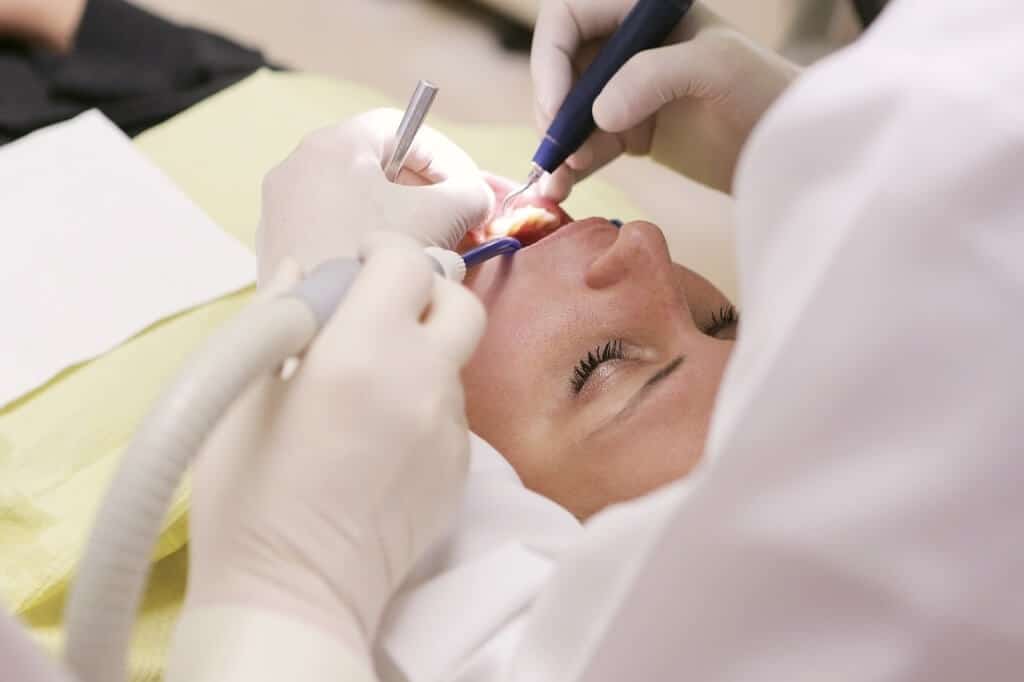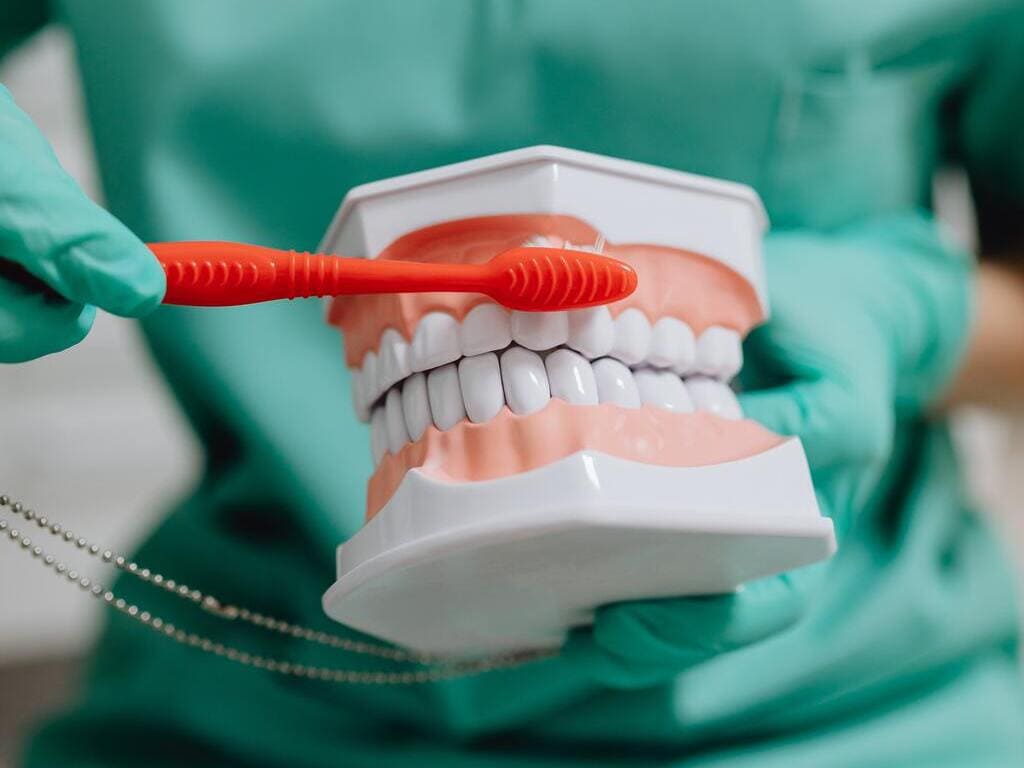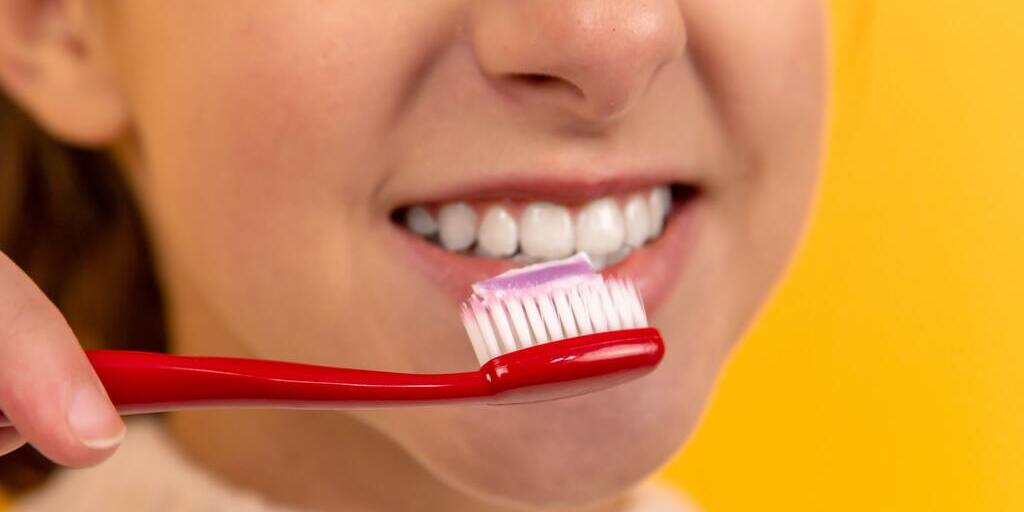Taking care of your teeth is really important for your overall health, and getting your teeth professionally cleaned is a big part of that. Did you know that this cleaning not only helps you have a bright smile but also stops different kinds of mouth problems?
In this article, we’ll look at everything you need to know about getting your teeth professionally cleaned. We’ll talk about why it’s good for you, what happens during the cleaning, and how often you should get it done.
You’ll learn how this professional cleaning can get rid of the stuff that builds up on your teeth, which helps keep you from getting cavities and gum problems. Plus, we’ll give you tips on how to take care of your teeth at home to help the professional cleaning work even better. So keep reading to make sure your mouth stays healthy and protected – your smile deserves the best

Table of Content
Key Takeaways
- Teeth Cleaning is a preventative treatment that helps prevent tooth decay, periodontal disease, and other oral problems.
- Its main benefit is that it prevents the appearance of cavities and other much more serious oral diseases.
- In order to be effective, dental prophylaxis must be performed periodically according to your case (between 3 and 6 months).
- Dental prophylaxis is different from scaling and root planing which is a deeper procedure and is indicated to control periodontal disease.
What is Teeth Cleaning?
Dental prophylaxis, often called a professional dental cleaning, is a preventive treatment done at the dentist’s office to keep your mouth healthy.
This involves removing plaque and tartar that build up on your teeth and gums, which you can’t completely get rid of by brushing and flossing at home.
It’s really important for preventing problems like cavities and gum disease, which helps your teeth and gums stay healthy for longer and improves your quality of life.
A dental hygienist or a dentist can do this cleaning. They use special tools to thoroughly clean all the surfaces of your teeth, even the hard-to-reach spots.
This treatment isn’t just about cleaning; it also includes checking and keeping an eye on your overall mouth health. Dental prophylaxis helps catch any signs of dental issues early, so they can be treated more easily and with less intense methods.
Besides preventing problems, a dental cleaning also makes your smile look better. Getting rid of surface stains and polishing your teeth can really improve how your smile looks, which can make you feel more confident.
So, dental prophylaxis is not only key for a healthy mouth, but it also helps you have a better overall quality of life
What does a dental cleaning remove?
It gets rid of things that shouldn’t be there, like stains or buildup of germs. These germs can show up in two main ways:
- Plaque: This is a soft, sticky layer of bacteria and bits of food. You can usually brush plaque away. But if you don’t brush well enough and leave it there, it gets hard and turns into tartar.
- Tartar (also called calculus or dental stone): This is a harder layer that forms when plaque hardens. It sticks very strongly to your teeth and can even go under your gums. Dentists need special tools, like ultrasonic cleaners or hand instruments, to remove tartar.
- Surface stains: These are caused by things that can color your teeth, like coffee or nicotine.
A dental prophylaxis at the Asiri Dental Center goes far beyond cleaning; it is a true Prevention experience
Benefits of our Dental Cleanings.
The main good thing about getting your teeth professionally cleaned is that it’s a proactive, complete, honest, and responsible way to take care of your teeth. Here’s how it helps:
- Stops tooth decay: Cavities happen when sticky stuff called plaque builds up on your teeth after you eat and drink. If you don’t brush and floss well, this plaque can get hard and turn into tartar, which only a dentist can remove.
- Prevents gum disease: Dental cleanings involve a deep clean of your gums and teeth. This helps stop your gums from getting red and infected (gingivitis). Keeping your gums healthy also helps your whole body because gum disease has been linked to other health problems like heart disease and diabetes.1
- Makes your teeth look better: Professional cleaning can get rid of stains on the surface of your teeth caused by food, drinks, and things like smoking. This makes your smile look nicer and can also make your teeth feel cleaner and smoother.
- Freshens your breath: By reducing the amount of bacteria in your mouth, it helps get rid of bad breath.
Recently published studies offer a nuanced perspective on the real benefits of dental prophylaxis.
What our Dental Cleaning Includes
Below we describe the steps or stages that are executed in our dental prophylaxis.
Phase 1: Detailed Assessment of Your Dental Health Status
We start with our great added value , we include you in a dental prophylaxis, everything we do in a dental health assessment or as it is technically called, a stomatognathic examination:
- Dental Record: If you do not have it, we will create your dental record, the document where your dental health status is recorded. And if you have it, it is updated.
- Oral Cancer Screening: It is an inspection of your mouth in a detailed search for signs of oral cancer.
- Periodontal Probing: With a special instrument, the health of your gums and tissues around all teeth is measured.
- Odontogram: Each of your teeth The presence or absence of cavities as well as fillings (resins or amalgams) in good or bad condition is explored in detail and registered in a special diagram.
- Dental Mobility Assessment: Yes Some of your teeth move, it is a sign that you are at risk of falling out, so we verify this condition to attack it promptly.
- Gingival Recession : The recession is the loss of gum at the level of the neck of the teeth, its existence generates sensitivity in your teeth due to its exposed neck, and over time causes bone loss, mobility and tooth loss.
- General examination of your mouth: The lips, cheeks, tongue, floor of the tongue, palate, maxillae, lymph nodes, and the jaw joint (TMJ: Temporomandibular Joint) are explored
- Education in oral hygiene instructions.
Phase 2: Ultrasonic Teeth Cleaning
With a cleaning equipment that vibrates at ultrasonic frequencies, known as a cavitron, we easily and comfortably remove all dental calculus or stone that may have adhered to your teeth
This phase is the one that you normally find in any dental clinic as deep teeth cleaning.
It is very important at this point to indicate that the sterilization of the cavitron or ultrasound tip must be 100% sterile
Tip: The ultrasound tip must be sterilized prior to use
Phase 3: Cleaning in hard-to-reach Areas
Using dental floss or floss, we clean the dental plaque that you may have in the most recondite spaces , by generating it between the teeth
Phase 4: Cleaning and Polishing with Brush and Prophy Paste
With a brush installed on a rotating instrument, all surfaces are cleaned with the help of a special prophylaxis paste that polishes and removes stains .
Phase 5: Topification with Fluoride
Another added value to our prophylaxis , we provide the necessary fluoride to help the remineralization of your teeth only in cases when needed 2. You will spend a few minutes with all your teeth impregnated in a fluoride gel and your teeth will be like new.
It has been scientifically proven that the professional application of fluoride is effective in preventing dental caries in both children and adults 3
We add value to our dental prophylaxis for your benefit and oral health, which is our main interest
How often should you get your teeth professionally cleaned?
How often you need to get your teeth professionally cleaned can be different for everyone. But usually, it’s best to get a professional dental cleaning at least twice a year. Doing this helps keep plaque and tartar from building up. It also gives your dentist a chance to check your mouth and catch any problems early.
People who have a higher risk of dental problems might need to go more often. This includes people who have had gum disease, get cavities easily, or have health issues that affect their mouth. For these people, the dentist might suggest cleanings every three months or even more often. The right number of cleanings for you should be decided by your dentist based on what you need.
It’s important to remember that brushing your teeth at least twice a day, flossing every day, and using an antibacterial mouthwash are also very important for healthy teeth. These daily habits help make professional cleanings even more effective and help keep your mouth healthy and free of disease.
Cost of a Dental Cleaning in Ecuador
The price can change depending on a few things. Here are some important things to think about:
- Where you are: The cost of a dental cleaning can be different depending on the city or area you’re in. Places with a higher cost of living might have higher prices. It’s a good idea to check prices at different dental offices near you before you decide.
- How experienced and qualified the dentist is: The price can also depend on how much experience and how many qualifications the dentist has. Dentists with more experience and better qualifications usually charge more because of their skills and knowledge. But you can also find good dentists who charge less.
- What your teeth need: The cost can also change based on what your teeth need. If you have a lot of plaque and tartar buildup, you might need a more thorough cleaning, which could cost more. Also, if the dentist finds other problems during the cleaning, you might need extra treatments that will cost more too.
It’s important to remember that even though a dental cleaning might seem expensive now, it can actually save you money in the long run by preventing serious dental problems. Think of it as an investment in your overall health.
For a general idea, a dental cleaning in Quito, Ecuador might cost around $35 to $45. Just keep in mind that this can change based on the points mentioned above.
Tips for Maintaining Good Oral Hygiene After Teeth Cleaning
After undergoing dental prophylaxis, it is important to continue to take good care of your teeth and gums to maintain a healthy mouth.
Some tips for maintaining good oral hygiene after dental prophylaxis include brushing your teeth twice a day with a fluoride toothpaste, flossing daily, avoiding sugary foods and drinks, and visiting your dentist regularly for dental checkups and prophylaxis.
Dental Cleaning vs. Gum Disease Treatment
Even though a regular dental cleaning and treatment for gum disease might seem alike, they are different things with different goals.
A dental cleaning is like a way to prevent problems by cleaning your teeth and gums before anything serious starts. It focuses on getting rid of the soft and hard build-up on the parts of your teeth you can see and just under your gums. It’s good for people who have healthy gums or just a little bit of gum inflammation.
On the other hand, gum disease treatment is for when gum disease is already more serious. When your gums get really inflamed and it turns into a deeper infection that affects not just your gums but also the bone that holds your teeth in place, you need more intense treatment. This might involve things like scaling and root planing (deep cleaning), where the roots of your teeth are cleaned really well to get rid of bacteria and make the pockets around your teeth smaller.
Gum disease treatment can be more involved and might take several trips to the dentist, plus you’ll need to take extra care at home to keep the infection under control.
A dental cleaning, however, is a normal procedure you can usually get done in one visit, and its goal is to keep your mouth healthy. It’s important to know the difference between these two so you can get the right treatment depending on how healthy your teeth and gums are
Who needs to get their teeth professionally cleaned?
Everyone should get their teeth professionally cleaned, no matter how old they are or how healthy their mouth seems. From little kids to older adults, everyone can benefit from regular professional teeth cleaning.
For kids, going to the dentist early helps them learn good brushing and flossing habits. It also helps catch any problems, like childhood cavities, when they are small.
Adults need to keep getting regular cleanings to stop plaque and tartar from building up and to watch for any changes in their mouth health.
People who wear braces or aligners also need to pay extra attention to professional cleanings. These things can make it harder to clean well at home, so plaque and tartar can build up more easily. Professional cleanings help keep their teeth and gums healthy while they have braces. Also, people with dental implants, crowns, or fixed bridges should get professional cleanings to make sure these stay in good shape for a long time.
Even people who think their mouth is very healthy should still get professional cleanings. Plaque and tartar can still build up even if you brush and floss well at home. Plus, these cleanings let the dentist see any problems early, which can stop bigger and more expensive issues later on.
Basically, getting your teeth professionally cleaned is an important part of keeping your mouth healthy for everyone.
Getting Ready for Your Dental Cleaning Appointment
Getting ready for this appointment is easy and doesn’t take much effort. But, there are a few things you can do to help make sure your cleaning is as good and comfortable as possible.
- Keep up good brushing and flossing in the days before your appointment. This means brushing your teeth at least twice a day, flossing every day, and rinsing with an antibacterial mouthwash. When you come to your appointment with a fairly clean mouth, it makes the dental professional’s job easier.
- Write down any questions or worries you have about your mouth health. This could be questions about how to brush, how to floss, or any weird things you’ve noticed. Having a list of questions helps you make the most of your time with the dentist and makes sure all your concerns are talked about. Also, it’s really important to tell your dentist about any changes in your overall health or any new medicines you’re taking, since some medicines can affect your mouth health.
- Talk to your dentist about how you’re feeling before your appointment. Lots of dental offices are ready to help with dental anxiety and can offer things like mild sedation or ways to relax so you feel more comfortable. Being mentally and physically ready for your dental cleaning appointment can make the whole experience much better and more helpful.
Taking Care of Your Teeth After a Dental Cleaning
After you get your teeth professionally cleaned (this is called a dental prophylaxis), it’s important to do a few things to keep your teeth clean and heal quickly without any problems.
Right after the cleaning, your teeth and gums might feel a little sensitive, especially if the hygienist removed a lot of tartar and plaque. This should go away in a few days. If it bothers you, you can rinse your mouth with warm salt water or take a pain reliever you can buy at the store.
It’s also really important to keep brushing and flossing well after your dental cleaning. This means brushing your teeth at least twice a day with toothpaste that has fluoride, flossing once a day, and using an antibacterial mouthwash. Doing these things will help stop plaque and tartar from building up between your dentist visits, which keeps your teeth and gums healthy.
Also, try to avoid foods and drinks that can stain your teeth, like coffee, tea, red wine, and brightly colored foods, for at least the first day or two after your cleaning. This will help keep your teeth looking nice and bright, like they did after the cleaning.
Basically, following these tips after your dental cleaning will help you get the most out of it and keep your mouth healthy for a long time.
Common Myths About Dental Cleanings
There are some common wrong ideas about dental cleanings that can cause people to have wrong information and not take good care of their teeth.
- It hurts: Actually, while you might feel a little bit uncomfortable, most people don’t feel pain when they get their teeth cleaned. Dentists and dental hygienists are trained to do it in a way that doesn’t hurt much, and they can use numbing gel if needed.
- It can damage the tooth enamel: This isn’t right. The tools and ways they clean your teeth are made to be safe and work well. Polishing your teeth during a cleaning doesn’t hurt the enamel. In fact, it helps get rid of stains and makes the surface of your teeth smoother, so plaque is less likely to stick.
- If I don’t feel any problems, I don’t need to go to the dentist: This is a dangerous wrong idea. Many teeth problems, like cavities and gum disease, can be there without causing pain or obvious signs at first. Dental cleanings are really important for finding and stopping these problems before they become serious. It’s important to explain that these myths are wrong so people take good care of their mouths and avoid problems later on.
Conclusion and Final Advice
Dental cleanings are a really important part of taking care of your teeth and help keep your mouth healthy. When you get a cleaning, the dentist can remove the stuff called plaque and tartar that you can’t get rid of by just brushing and flossing at home. This helps stop problems like cavities and gum disease, and it also makes your smile look better. It’s usually a good idea to get your teeth professionally cleaned at least twice a year, but you might need to go more often depending on what your mouth needs.
It’s important to know the difference between a regular dental cleaning and treatment for gum disease. A cleaning is for keeping your mouth healthy, while gum disease treatment is for when you have a more serious infection in your gums. Everyone, from kids to older people, should get regular dental cleanings to have good oral health.
To get the most out of your dental cleanings, it’s key to brush and floss really well at home and be ready for your cleaning appointment. Also, understanding that some common ideas about dental cleanings aren’t true can help people realize how important they are and want to get them. Basically, getting your teeth cleaned is a good thing for your mouth and your overall health, and it should be a regular part of how you take care of your teeth
FAQs about Teeth Cleaning
Will I feel pain during dental cleaning?
No. Some patients may feel a little cold or tender in some areas, others not even that.
How often do I have to do a teeth cleaning?
We recommend that you visit us every 6 months for your complete dental hygiene, that is, 2 times a year. If you are susceptible to generating a lot of plaque or stone, this period can be shortened to every 3 months.
Is the dripping device used?
eYes. Ultrasound or cavitron is used. This device drips water and destroys the stone more easily with its vibration. The water is to cool it and in turn clean your teeth more.
Will I bleed?
Only those with swollen gums bleed a little. Just like when you brush your teeth.
How long does a dental cleaning last?
Our prophylaxis is not just a cleaning, it is a preventive package that we take very seriously, which is why it lasts about an hour.
Can I eat after dental cleaning?
In a normal cleaning yes, but since we do a topification with fluoride, you must wait at least an hour to eat.
What if I have dental calculus below the gum?
This is already a sign of periodontal disease that must be attacked quickly through a scaling and root planing, which is a meticulous internal cleaning process carried out by our periodontists in Quito.
When should I do teeth cleaning in children?
In young children, prophylaxis is indicated by the pediatric dentist in his check-ups when he determines it is necessary From adolescence, if it is already treated with the same frequency as adults: every 6 months or twice a year.
If I wear orthodontics, when should I have my teeth cleaned?
Before any orthodontics, a sanitation stage is necessary, which includes, among other things, dental prophylaxis. After orthodontics is installed, it should be done every 3 to 6 months When removing the orthodontics, it is also closed with a prophylaxis and of course your teeth retainers
How much does dental prophylaxis cost?
The cost of dental prophylaxis can vary depending on your location and your dental clinic. It’s important to etalk to your dentist e about costs before making an appointment.
Conclusions
Teeth Cleaning is an essential preventive treatment to maintain healthy teeth and gums and a beautiful smile.
Our dental prophylaxis guarantees you more than cleaning, it is a package of preventive actions and early detection that you will not get in other clinics.
We give you very important added values because our focus is your happiness, your health and we know that prevention is the key to this.
If you haven’t had dental prophylaxis in Quito yet, talk to your dentist about making an appointment. Your smile will thank you.
References:
- Stanko P, Izakovicova Holla L. Bidirectional association between diabetes mellitus and inflammatory periodontal disease. A review. Biomed Pap Med Fac Univ Palacky Olomouc Czech Repub [Internet]. 2014 [citado 2022 Nov 6];158(1):35-8. Disponible en https://doi.org/10.5507/bp.2014.005 ↩︎
- Hawkins, R., Locker, D., Noble, J. et al. Prevention. Part 7: Professionally applied topical fluorides for caries prevention. Br Dent J 195, 313–317 (2003). https://doi.org/10.1038/sj.bdj.4810527 ↩︎
- l-Ansari, A. Is professionally applied fluoride effective in preventing or arresting caries in older adults?. Evid Based Dent 23 [Internet], 138–139 (2022). Available at https://doi.org/10.1038/s41432-022-0841-y ↩︎





